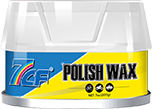In automotive repair and maintenance, the use of adhesives is very common—such as for applying films, installing badges, and attaching trim. However, when it comes to replacement or repair, leftover adhesive residue often becomes stubborn and difficult to remove. At this point, selecting the right car adhesive remover is crucial. This article provides a comprehensive guide based on performance, safety, applicability, and environmental considerations.
A high-quality adhesive remover for cars must have strong dissolving power. It should quickly penetrate and break down various types of adhesive residues, including strong adhesives, double-sided tapes, and sealants. At the same time, ingredient safety is vital. Some removers on the market contain harsh solvents that can damage car paint, plastic parts, or rubber components. Therefore, priority should be given to products with mild formulations that are free of harmful solvents, ensuring the protection of the vehicle's surfaces and user health.
Different vehicles and parts use a variety of materials, including metal, plastic, rubber, and painted surfaces. An ideal car adhesive remover should be compatible with multiple materials without causing corrosion, discoloration, or damage to the paintwork, plastics, or interior components. A versatile remover that also offers cleaning and mild stain removal functions can be especially practical, reducing the need to purchase multiple cleaning products.
Ease of application is an important factor when choosing an adhesive remover for cars. Spray-type products are typically convenient, allowing precise application to the target area while minimizing waste and unintended contact with other parts. Additionally, removers with moderate evaporation rates and low or no strong odors can prevent discomfort during use. For professionals, using appropriate protective gloves and masks is essential to ensure safety.
With rising environmental awareness, eco-friendly adhesive remover for cars has gained popularity. Green formulations not only reduce environmental pollution but also minimize health risks to users. Selecting products with low volatile organic compound (VOC) content that comply with national environmental standards helps protect both the operator's health and the surrounding environment. This is particularly important for automotive detailing shops and repair workshops where frequent use is common.
Contact Us
 English
English  Español
Español  日本語
日本語  한국어
한국어  français
français  Deutsch
Deutsch  italiano
italiano  русский
русский  português
português  العربية
العربية  tiếng việt
tiếng việt 


